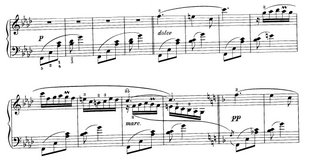Currently in the midst of clearing the cobwebs off my relatively new shelf and table of books, scores and other miscellaneous materials, and re-classifying them for the new year. Back when the shelf newly arrived, I had classified all my books and sheet music by just having a section each for classical sheet music (sub-classified into the various periods etc), ethnomusic books and sheet music, religious, philosophy and literature books and so forth. A pretty simple, systematic and organised categorisation, but it didn't strike me as being right, or meaningful.
Might as well, since it's the new year, that gave me some reason to re-organise the entire mountain of materials. I cleared the entire shelf and table of their contents and basically sat on the floor for the next few hours to re-organise all those materials once again. This time, I did it differently. Since the bulk of my books were basically classical music books, sheet music, method books, I decided that the music with their distinctive styles and temperaments were placed next to materials which have relations to the music. For Bach's music, due to their inherent spiritual value (present even in those works which were conceived as secular works), they were placed together with my religious materials and books, essays and treatises on baroque performance directions. As a matter-of-fact, these materials were placed within an arm's length from where I'll be sitting when I'm practising. I really can't do without them and not to mention that the music scene wouldn't be the same without our beloved Bach. Next to them, a little further but still within reach is a section exclusively for charming Schubert. I do realise that I have amassed quite a collection of his works (pretty surprising since he wasn't a guitar composer), especially his lieders, both with the accompaniment transcribed to the guitar and the urtext version. Right next to them, are of course, books and essays on Schubert himself, essays on aesthetic beauty and poetry. And not the mention the huge collection of Spanish music which are placed on a level further, right next to books and sheet music on flamenco culture, Spain and anything Spanish, including a language book on mastering the language. Modern music which I've yet managed to come to terms with were allocated a meaningful place too as they were next to the philosophy books with certain theories and parts which I have yet the maturity to comprehend.
It's a truly nostalgic experience re-arranging the shelves. So many a times have I felt tempted to stop what I was doing and put a particular piece of music on the stand and play it on my guitar. While I was browsing through the pieces of music, thoughts and reflections of the qualities of the music which first lured me to acquire them went through my mind. A truly spiritual experience. While I was holding the two versions of Bach's Goldberg Variations (Urtext and an authentic transcription for the guitar by József Eötvös) in my collection, Glenn Gould's most spiritually weighty 1981 recording just before his death started playing in my mind. Flipping through the pages of the sheet music, I was once again so thankful that Hungarian guitarist József Eötvös had done a masterful job of transcribing the entire work onto solo guitar. And for the mighty Chaconne of Bach as well, I could go on and on about the magnificent beauty of its structure and spiritual value. Currently, right on my music stand is actually the sheet music for Schubert's Arpeggione Sonata for guitar and piano. The other two versions which I've often compared it with were on the shelf. I was holding all the three different transcriptions of it (cello and piano, viola and piano besides my version on the stand) earlier and spending such a marvellous time flipping through them and playing such poetically intense music mentally. There were those times too, when I found sheet music which I never thought I had. It's a certainly wonderful experience re-classifying those materials which have affected my life, whether musically or not, at some point or another.
And I sincerely thought that the huge shelf I got from the furniture store was sufficient probably for the next year, but I'm now desperately running out of space soon, given the huge pile of materials left on the table which have yet to be packed. And right in the dark corner of the picture lies a humongous pile of CDs and DVDs which are still waiting for the arrival of rack.
In the midst of browsing through the books, I chanced upon a quote by T.S. Eliot, aptly stating that
"Poetry is not a turning loose of emotion, but an escape from emotion; it is not
the expression of personality, but an escape from personality. But, of course,
only those who have personality and emotions know what it means to want to
escape from these things."
I certainly do find his argument coherent, even when such a statement is used for music in my case. Certainly, the emotions one, or rather, I, would like to express in a piece of music, would have to be firstly felt, pondered upon on the best way the music can evoke it before such an emotion would be able to be presented in a palatable, acceptable and stylistic manner to the audience. Somehow along the way, I had learnt to control and shape those most powerful emotions in a musical way, taking into consideration that I wouldn't lose that spontaneity along the way.
Somehow, looking back at all things artistic in the past year, I am glad to be a musician - another most blessed species of animals that God has created...




